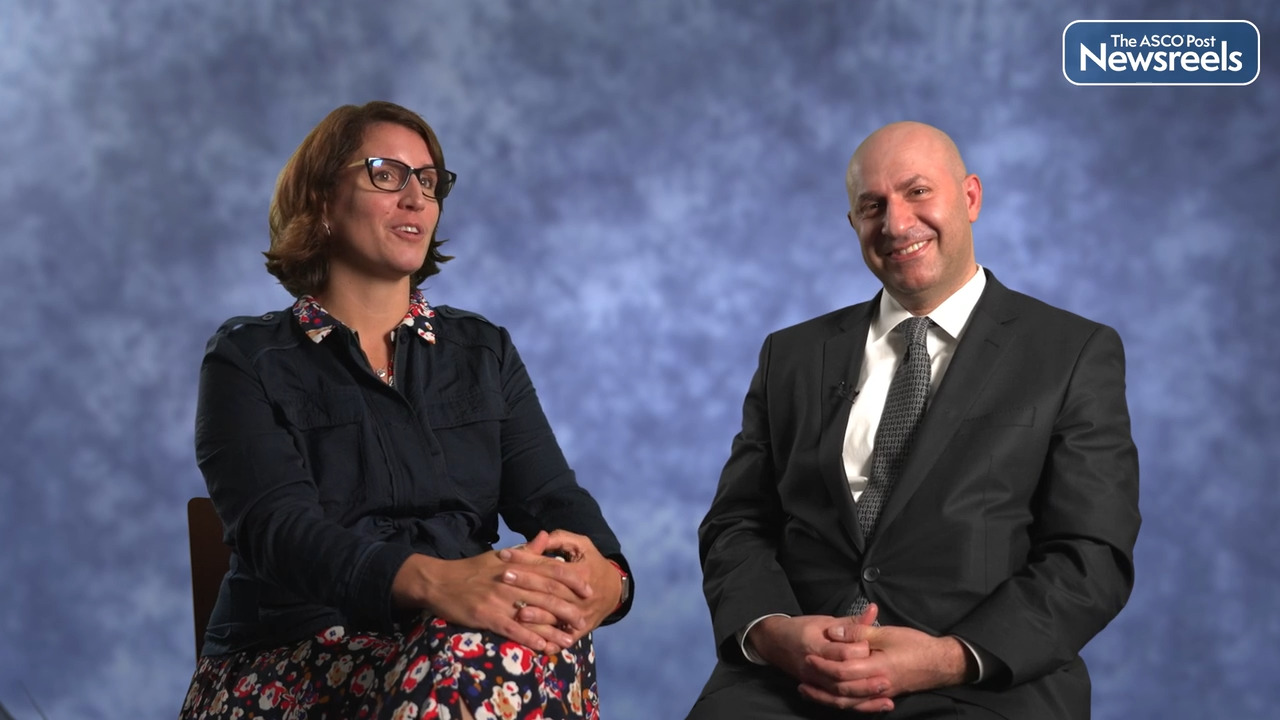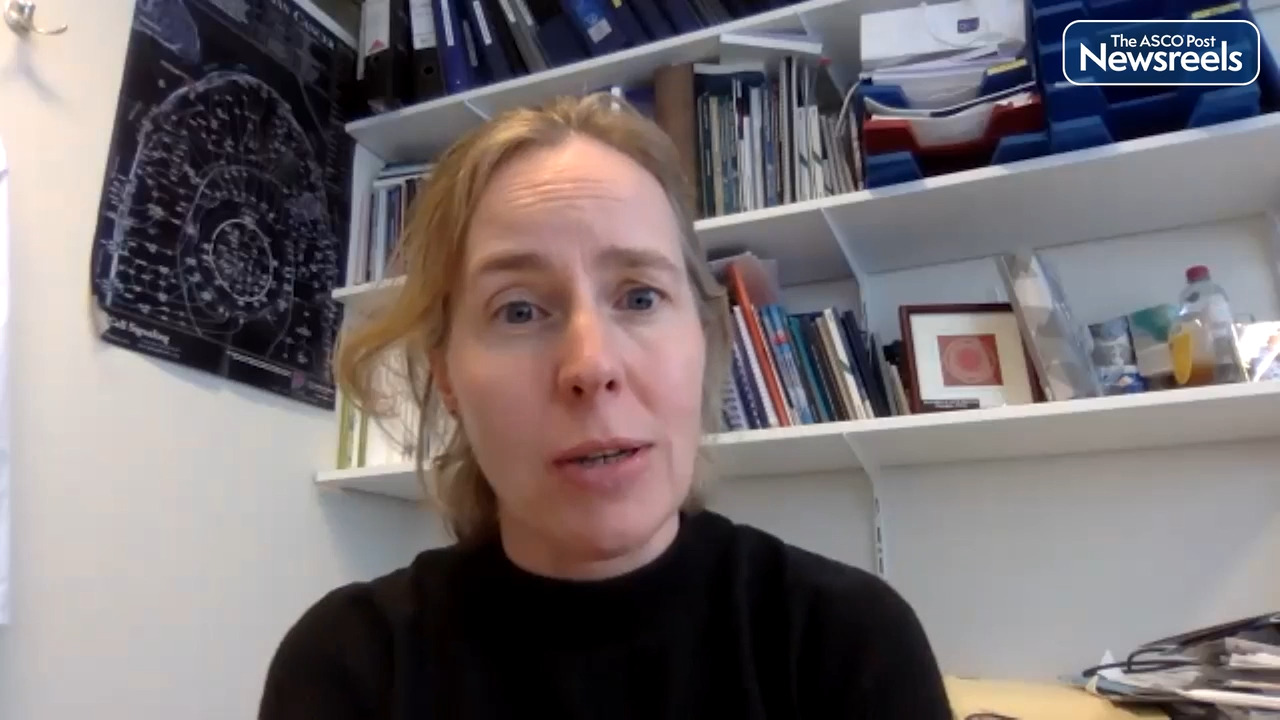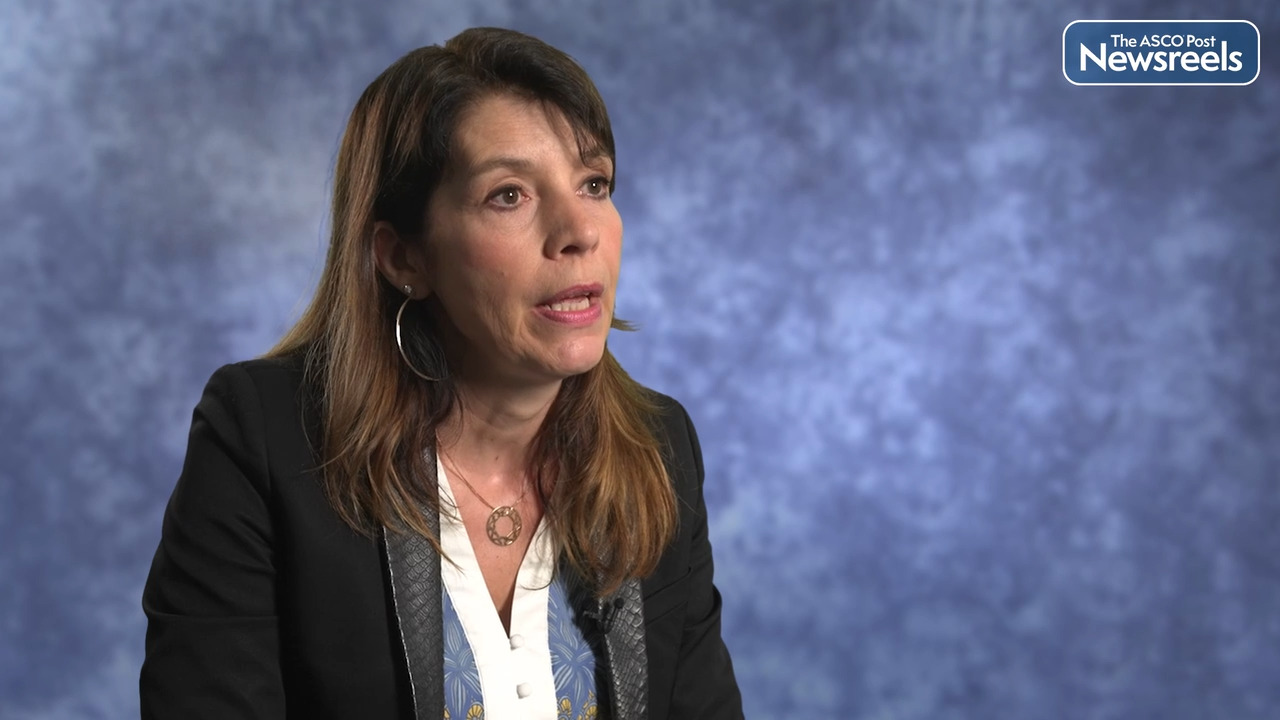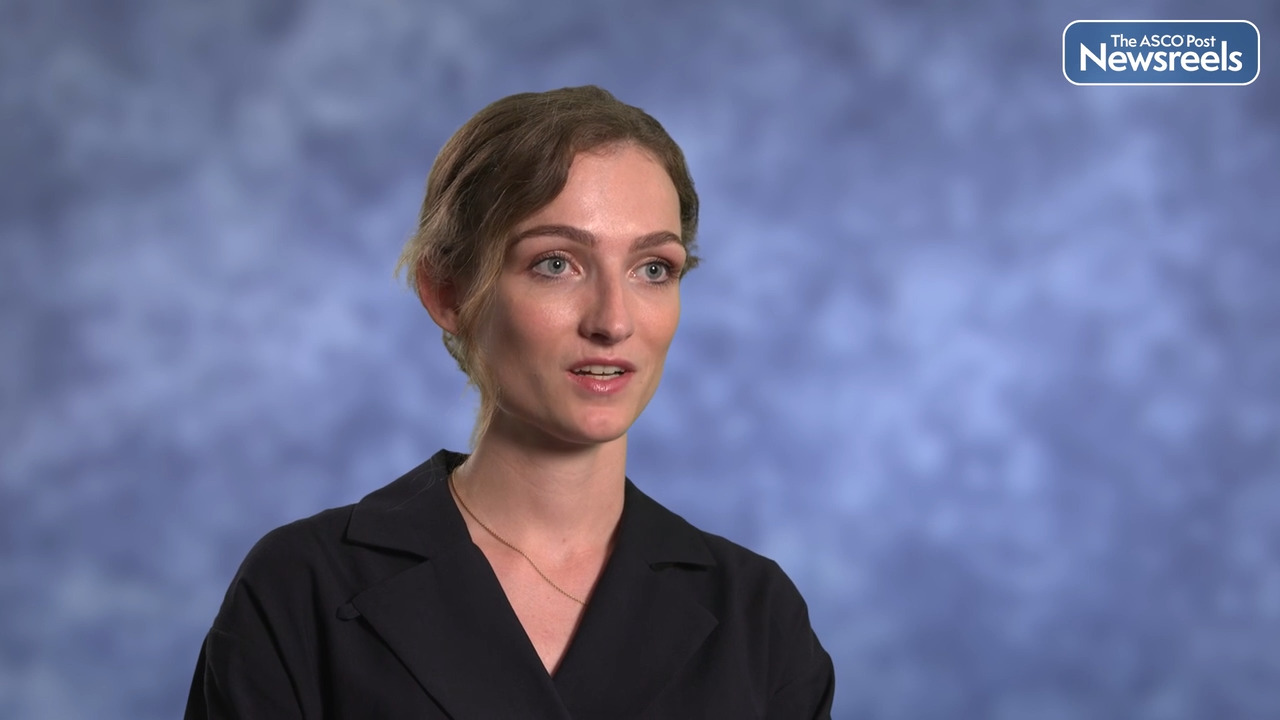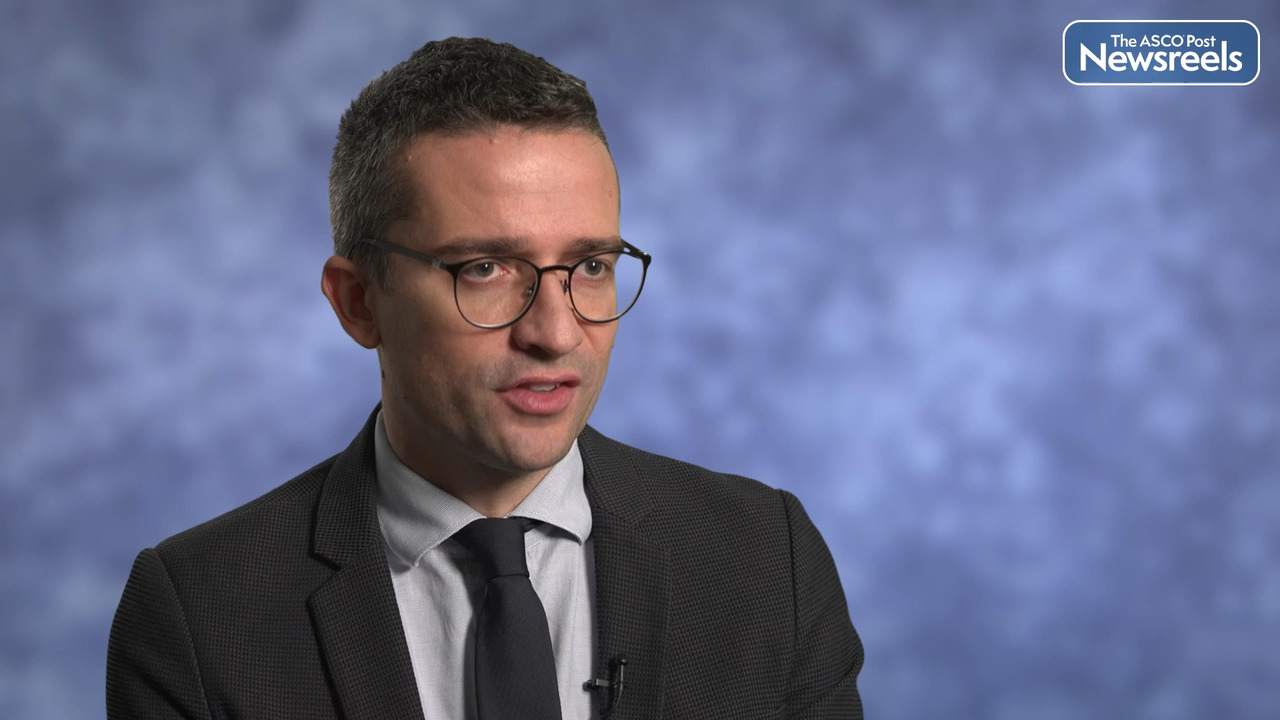Antonio Marra, MD, on Metastatic Breast Cancer: Patterns of Genomic Instability and Their Effect on Treatment
ESMO Congress 2022
Antonio Marra, MD, of Memorial Sloan Kettering Cancer Center, discusses a mutational signature analysis that reveals patterns of genomic instability linked to resistance to endocrine therapy with or without CDK4/6 inhibition in patients with estrogen receptor–positive/HER2-negative metastatic breast cancer (Abstract 210O).
Transcript
Disclaimer: This video transcript has not been proofread or edited and may contain errors.
The study we presented at this meeting was focused on the mutational signature analysis of breast cancers. We used the genomic data collected from a clinical sequencing program at Memorial Sloan Kettering, and we studied over 4,000 breast cancer, studying mutational signatures, that are mutational processes that shape the genomes of this cancer. In breast cancer, we have three main mutational processes and mutational signatures that are HRD, APOBEC, and clock. Our work will mainly focus on APOBEC and HRD that are the two main mutational signatures that cause genomic instability.
We firstly try to identify which are the main settings where these signatures are rich, and we find that both HRD and APOBEC are rich in the metastatic samples of the ER-positive HER2-negative subtype. We then evaluated the clinical and pathologic features of these tumors, and we found the enrichment for specific pattern including lobular phenotype and tumor with high tumor mutational burden.
From a treatment perspective, we then evaluated the role of the signature on the response to specific treatments and we found something really interesting, because these two signature were both associated with a lower progression-free survival for patient treated on first-line with endocrine therapy with or without CDK4/6 inhibitor, suggesting that genomic instability caused by these two mutation processes is associated with the reduced benefit from standard treatments.
We then focus the last part of our work on studying the genomic mechanism of APOBEC mutagenesis in breast cancer and we found some very strong genetic association including enrichment for variant-specific genes like CDH1, PIK3CA, and most importantly also, some genes are associated with endocrine-resistance like NF1 or PTEN.
We finally did a very strong analysis on the association within PIK3CA variants and APOBEC mutagenesis found a specific region in tumors that have multiple PIK3CA mutations and this may have some clinical indication considering that breast cancer with multiple PIK3CA mutations seems to have a better response to PIK3C-alpha-selective inhibition.
In conclusion, our study shows that genomic stability is a marker of lower benefit on endocrine therapy and CDK4/6 inhibition, and most importantly, we may have in the future new treatment targeting this mutational process that can open to advancement in treatments and open new opportunities for our patients.
The ASCO Post Staff
Toni K. Choueiri, MD, of the Dana-Farber Cancer Institute, and Laurence Albiges, MD, PhD, of France’s Gustave Roussy Cancer Centre, discuss results from two important trials presented at ESMO 2022: Cohort 1 of the LITESPARK-003 study of belzutifan plus cabozantinib as first-line treatment of advanced renal cell carcinoma (RCC), and the KEYNOTE-B61 study of pembrolizumab plus lenvatinib as first-line treatment for non–clear cell RCC (Abstracts 1447O and 1448O).
The ASCO Post Staff
Marleen Kok, MD, PhD, of The Netherlands Cancer Institute in Amsterdam, discusses the initial results from the BELLINI trial, which tested whether short-term preoperative nivolumab, either as monotherapy or in combination with low-dose doxorubicin or novel immunotherapy combinations, can induce immune activation in patients with early-stage triple-negative breast cancer with tumor-infiltrating lymphocytes (Abstract LBA13).
The ASCO Post Staff
Christelle de la Fouchardiere, MD, of France’s Centre Léon Bérard, discusses phase III findings from the PRODIGE 65–UCGI 36–GEMPAX UNICANCER study, which evaluated whether the combination of gemcitabine and paclitaxel improves overall survival compared with gemcitabine alone in patients with metastatic pancreatic ductal adenocarcinoma after FOLFIRINOX failure or intolerance (Abstract LBA60).
The ASCO Post Staff
Marinde J.G. Bond, PhD Candidate, of the University Medical Center, Utrecht, discusses phase III findings from the CAIRO5 study of the Dutch Colorectal Cancer Group, the first such trial in defined subgroups of patients with initially unresectable colorectal cancer liver metastases and left-sided and RAS/BRAF V600E wild-type tumor. The study compared FOLFOX/FOLFIRI plus either bevacizumab or panitumumab (Abstract LBA21).
The ASCO Post Staff
Matteo Lambertini, MD, PhD, of the University of Genova and Policlinico San Martino Hospital, talks about why oncofertility counseling should now be considered mandatory in the care of young women with breast cancer. Among the treatments he recommends offering are oocyte/embryo cryopreservation (or ovarian tissue cryopreservation in those not eligible for gamete cryopreservation); ovarian suppression with gonadotropin-releasing hormone agonist during chemotherapy; and long-term follow-up to improve the management of gynecology-related issues faced by these women.
